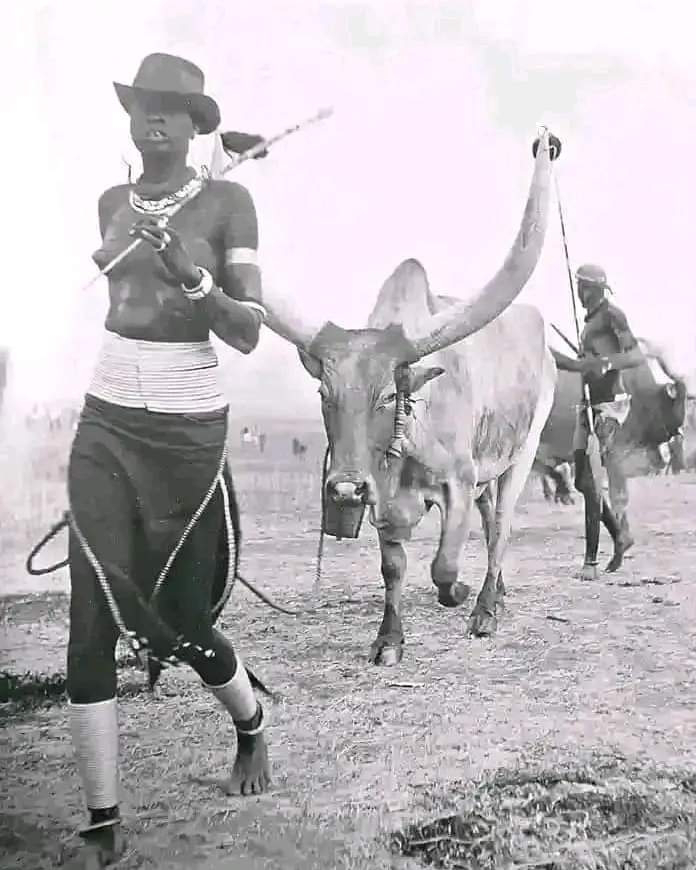The main groups of Dinka and their home areas include: Malwal in Aweil, Thoi Luach in Pangak, Ngok and Renk in Bailiet; Ruweng in Bentiu, and the Twic, Nyar-weng and Hol, Bor. There are also the Agar and Gok in Rumbek, Rek and Luach in Tonj, Rek in Gogrial, Aliab, Atuot and Ciec in Yirol, and Dinka Ngok in Abyei. Traditionally, the Dinka believe that the sphere of the living and the dead interact, and that God, as well as the spirits of ancestors and departed relatives, can be addressed in a special place, yik, found in every Dinka homestead.
According to their mythology, God or Nhialic created the first man and woman, Garang and Abuk. Deng was their first born, the son from whom all Dinka are descended. Within a Dinka group, chiefly clans or beny own the land.
A chief is believed to possess supernatural powers associated with truth-telling, justice, wealth, knowledge and prophetic vision. Chiefly clans base their social superiority on an ancestor myth peculiar to their descent. The distinction between beny alath, paramount chief, and beny bith, chief of the spear, came about as a result of the colonial creation of the tradition of beny alath as customary law officers.
Marriage is mandatory and every man is expected to raise a family, Cattle are the medium of exchange in marriage, in debt and blood price, for sacrifices to the spirits, and for major occasions and rites. The cost of bride price differs from one group of Dinka to another.
It is raised by the groom's family and distributed uncle to uncle, brother to brother and so on among the bride's clan Chief's daughters fetch a higher bride price, and in the same way, a chief's.











0 Comments